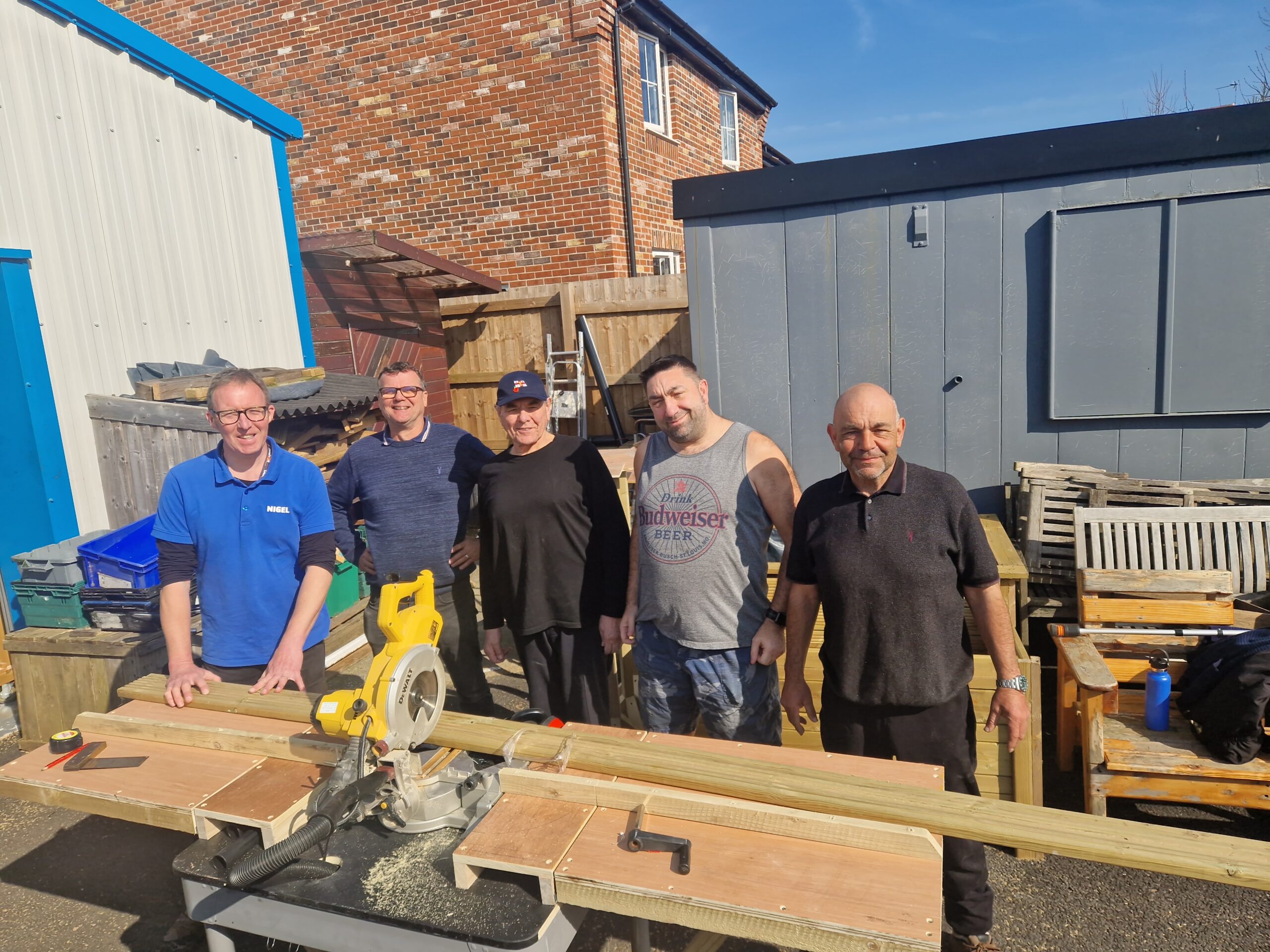The Shed Club is a remarkable initiative that not only provides a creative and therapeutic outlet for people with neuromuscular conditions and carers, but also a vital support network for its members.
The club use recycled, donated wood only and craft items such as planters, magazine racks, bird feeders, and wheelbarrows. These practical, hands-on projects not only contribute to the well-being of the members but also benefit our wider community, as proceeds from the sale of these creations support the running costs of NMC.
The Shed Club’s model; run by volunteers, many of whom have a neuromuscular condition themselves, creates a truly unique environment. It provides a supportive, judgment-free space for people to share skills, develop their creativity, and connect with others who understand their challenges. This is especially important for those who may otherwise feel isolated due to their condition. For many members, the Shed Club is a lifeline, giving them a sense of purpose and belonging that may be difficult to find in other settings.
Some key aspects of the club’s impact are:
- Supportive, therapeutic environment: The club’s welcoming, inclusive atmosphere allows members to focus on creative endeavours rather than challenges they may be facing in their personal lives. For some members, the two days a week they spend at the Shed Club are the only times they leave the house, making it a vital space for mental health: “We drink a lot of tea and eat a lot of biscuits. And we talk. A lot.”
- Skill-sharing and purpose: The opportunity to learn and share practical skills with others offers members a chance to gain confidence, both in their abilities and their capacity to contribute. This can be particularly therapeutic, as many members report a sense of achievement and personal growth from their work: “I’ve been a member of Shed Club for 8 years. It’s greatly improved my self-worth. I felt like I had nowhere to go before to use my skills, except round the house. I wouldn’t be able to achieve any of this anywhere else. There’d be too much pressure, and not the right knowledge or support to help me make things safely.”- Shaun Buckley
- Community and camaraderie: The bond shared among members is central to the club’s ethos. The mutual support and care members show each other create a strong sense of camaraderie, which helps combat feelings of loneliness and builds deep, lasting friendships. “They’re great guys. The way they help each other out and care about each other is amazing. They’re really there for one another.”Mark Hudson, NMC team.
Mike’s story powerfully demonstrates how transformative such a space can be:
“Shed club has changed my life. Not even 3 years ago, I wanted to end my life. I’d been stuck at home for 5 years, not doing anything. I’d worked as a forklift truck driver but they got rid of me in 2017 because I had back problems. I was diagnosed with a neuromuscular condition in 2021 and started coming to the Centre 2½ years ago; I thought, OK, let’s see how it goes. I’ve got involved in a few things at NMC but it was joining Shed Club that changed everything for me. Everyone says I’m me again. I’ve got my sense of humour back. It’s given me a purpose. It takes my mind off everything else that’s going on. The camaraderie down there is like nothing else.”
With 8 members currently, 7 of whom have neuromuscular conditions, the Shed Club continues to provide a vital service nearly 10 years since its inception. The club’s success and impact are a testament to the power of community-driven, creative spaces and their ability to improve the lives of people with long-term conditions.

